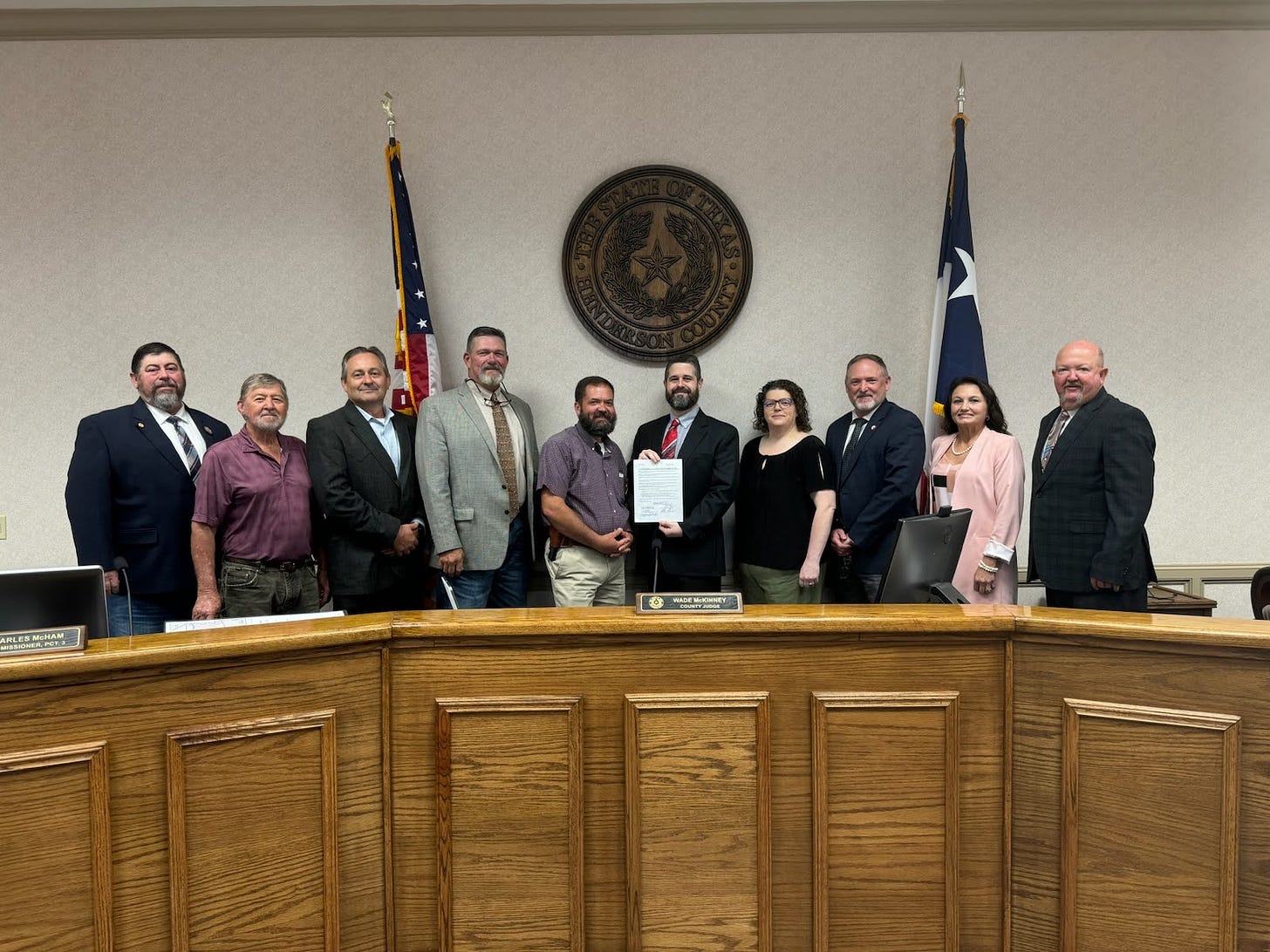Henderson County Takes Steps to Address Mental Health Crisis in Jail
The Henderson County Commissioners Court took significant steps on Tuesday to address a mental health crisis in the Henderson County Justice Center (jail), declaring May 2024 as Mental Health Awareness Month and approving two significant amendments to their agreement with Southern Health Partners.
The proclamation emphasized the importance of mental health to overall well-being and the stigma that prevents many from seeking help. "Together we can create a community where everyone feels empowered to prioritize their mental well-being and seek help when needed," the proclamation reads.
The Court also approved two amendments to their agreement with Southern Health Partners for health services in the jail. The existing services include a Psychiatric Registered Nurse who spends 30 hours a week counseling inmates and collaborating with a doctor. Additionally, a nurse practitioner visits once a week for four hours, working closely with the Psychiatric RN to manage and treat inmates with mental health conditions. Together, they see approximately 30 clients weekly, offering mental health services and interventions within the facility.
The first amendment, costing approximately $67,000, will increase the Nurse Practitioner’s presence in the jail from one day to two days a week. The second amendment introduces an electronic medical records system, with the county covering integration costs and Southern Health Partners handling equipment and maintenance fees. The new system, costing about $30,000, is aimed at enhancing coordination and efficiency as stakeholders work together on these complex issues.
The Problem
As of Tuesday, there were 451 individuals booked into the jail, about 30 percent having mental health issues, according to Sheriff Hillhouse. This is not unusual.
"The county jails across the State of Texas are now the local mental health authority," he said.
Sheriff Hillhouse told Commissioners the competency of felony inmates is assessed by a doctor. When an inmate is declared incompetent, the wheels of justice slow down significantly. The inmate is placed on a forensic bed waitlist, and the prosecution is put on hold until the inmate can be restored to competency. Currently, this waitlist is about two years long, meaning inmates remain in the Henderson County jail during this time. Once a bed becomes available, the inmate is transferred for restoration, which typically takes three to six months. After restoration, the inmate returns to the jail, and the prosecution process resumes.
The Sheriff believes increasing the nurse practitioner's time in the facility will have a significant impact on shortening how long these inmates stay in the jail.
"We're hoping with her seeing these clients and focusing on nothing but mental health one day a week, then we can restore these clients before they ever go their state bed," he said.
County Court Coordinator Angie Goggans has been at the forefront of the County's efforts to identify and help inmates identified with mental health issues, particularly those being brought in for misdemeanor offenses. Those inmates are rarely in jail long enough to get help but return often on other misdemeanor charges.
She told Commissioners there was the potential to help these people break the cycle of in and out of jail through coordinated efforts, beginning treatments while inmates are in jail, and continuing support after their release to help them reintegrate into society successfully.
"They are not getting the help that they need," said Goggans. "If you had somebody on the inside for an early intervention it would be a positive for the community."
A Beginning
County Judge Wade McKinney said Tuesday's moves were made after a nearly 18-month "deep dive" into the impact of inmate mental health issues in the jail. He highlighted that this has been a collaborative effort between his office, the Sheriff's Office, and the offices of the County Attorney and District Attorney.
He also said there was more to come.
"What we're doing are Steps 1 and 2," he said. "There may be 30 more steps before we get to where we are actively able to support this community."
The biggest step might have been just talking about the issues.
"I don't believe most people, even elected officials, understand that the jail is the mental health facility," said Pct. 3 Commissioner Chuck McHamm. "I think it is important that the Sheriff brings this forward and lets everyone know that Henderson County is trying to do something to alleviate this problem."



